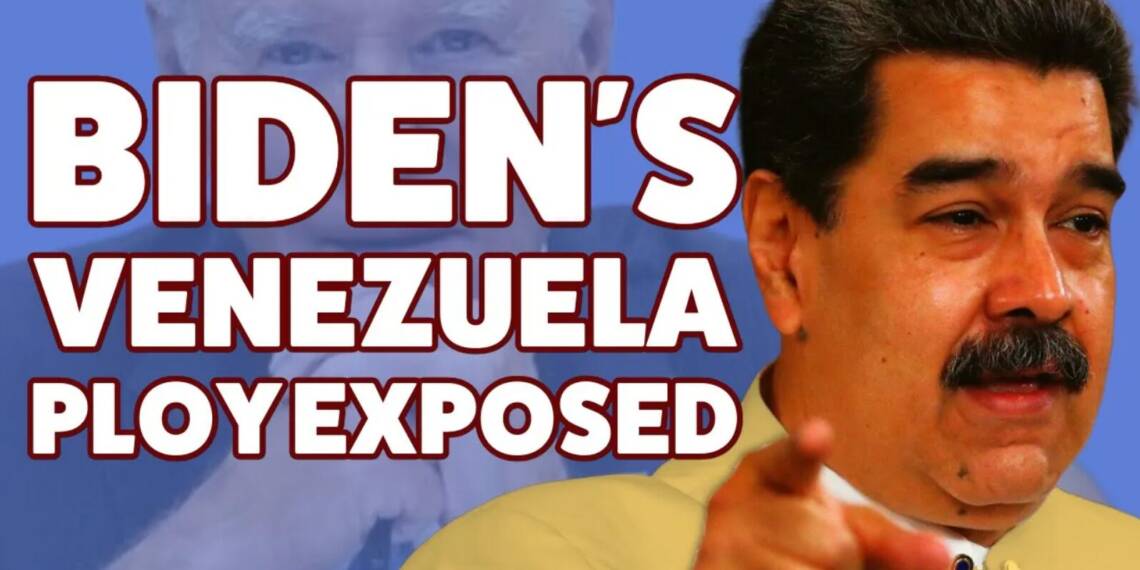In response, the White House reevaluated its foreign policy options and reached out to Venezuela, home to the world’s largest, yet largely untapped, oil reserves. While the timing of this move may appear coincidental, its strategic implications were clear. By engaging with Venezuela, the U.S. aimed to secure a more controllable oil supply and use economic relief as leverage in broader geopolitical strategies.
This approach was also aimed at improving U.S.-Venezuela relations, potentially countering China, India and Russia’s growing influence in Latin America, and addressing the migration crisis by aiding economic stability in Venezuela.
In a notable shift, the U.S. engaged diplomatically with Venezuelan President Nicolas Maduro, whom it had previously accused of “narcoterrorism” in 2020 and attempted to undermine by supporting opposition leaders. Instead of pursuing Maduro’s arrest — despite a $15 million bounty — the U.S. chose a diplomatic route, highlighting a hypocrisy entrenched in US foreign policy approach.
American oil company Chevron was swiftly granted a license to operate in Venezuela in November 2022, following a sanctions waiver a month earlier. This agreement allowed the U.S. to unlock Venezuelan oil sale revenues previously frozen under sanctions, marking a departure from past practices where Venezuelan oil profits were seized via the U.S.-based Citgo, a subsidiary of Venezuela’s state oil company, PDVSA. The seized funds had historically supported U.S.-backed opposition in Venezuela.
When the Guaido initiative faltered and President Maduro maintained control amid the disruptions in global oil markets caused by Western sanctions on Russia, the U.S. adjusted its stance. The American government allowed Venezuela access to some of its oil revenue, leading to a renewed presence of Chevron in the country. Chevron swiftly capitalized on this opportunity, announcing a new drilling venture with PDVSA aimed at boosting oil output.
However, this re-engagement was short-lived. Six months later, the U.S. let the sanctions waiver expire, along with any temporary business licenses for operating in Venezuela.
Sanctions have long been a tool for the U.S. to influence global dynamics, but executing this strategy is becoming increasingly challenging as countries seek alternatives to a Western-centric world order. Remember in February 2020, the U.S. sanctioned Russia’s Rosneft for facilitating the sale and transport of Venezuelan oil—a practice that would presumably be acceptable for American firms under similar circumstances. At the time, then-Treasury Secretary Steven Mnuchin declared the U.S. intent to prevent the exploitation of Venezuela’s oil by Maduro’s government, even as the U.S. itself was engaged in redirecting profits from Venezuelan oil.
But the moment Venezuelan opposition candidate Maria Corina Machado was barred from the upcoming presidential elections scheduled for July 2024, Biden administration tacks. The Supreme Court banned Machado from politics for 15 years, citing her involvement in corruption activities orchestrated by Juan Guaido. These actions had led to significant losses for Venezuela, including the dispossession of national assets abroad.
Washington, which champions the ideals of democracy — advocating for elections that are as free and fair as those it purports to conduct domestically — has found in Machado’s disqualification a pretext to reimpose sanctions on Venezuela. The U.S. holds itself as a model of clean and democratic processes.
However, the real reason is different – U.S. oil prices have decreased, domestic production has surged, and the demand within the country has diminished. This shift reduced the urgency of accessing Venezuela’s vast oil reserves, which were once seen as crucial.
This situation leaves other international players without access to Venezuelan oil, effectively ending what might have looked like a more inclusive engagement. This had led to two direct consequences – Latin American nations aren’t going to trust Washington on its words ever again and the region will tilt more towards – Russia, India and China.







